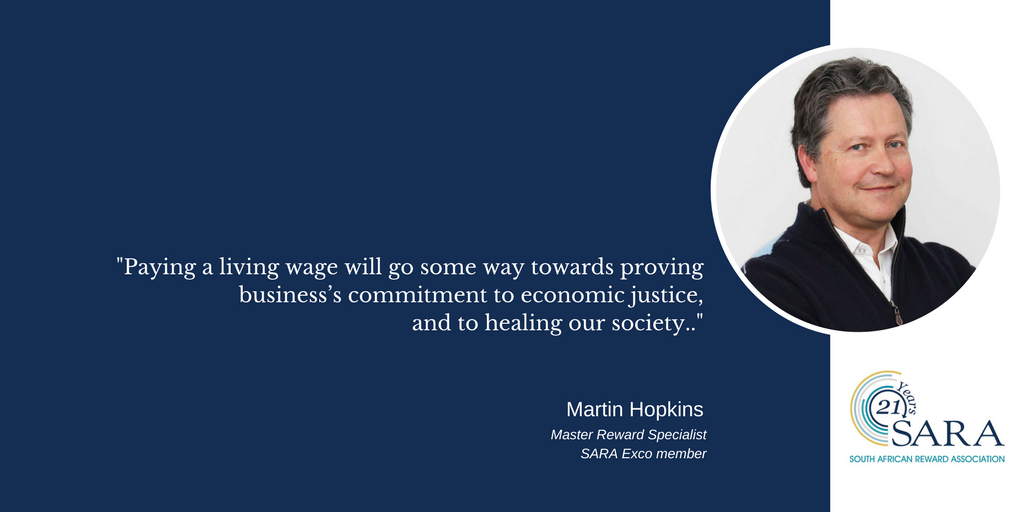|
To mark Human Rights Month, the South African Reward Association (SARA) is calling for business to look beyond the national minimum wage agreement, and vigorously explore ways to implement a living wage. The phenomenon of “the working poor” is fuelling the ongoing resentment and violent industrial action that increasingly bedevils South African business, says Martin Hopkins, Master Reward Specialist, Executive Committee Member at SARA and partner at PWC in the People & Organisation practice.
“In many senses, the national minimum wage is something of a red herring, because it could distract companies from the need to work towards paying a living wage, rather than just a minimum wage,” says Mr Hopkins. He argues that the minimum wage does not allow employees to live a decent, dignified life, and employers should therefore devote attention to how to do so. While there is no consensus about what a living wage in South Africa is, it is certainly substantially above the R3,500 minimum wage. Cosatu’s Patrick Craven says that the working poor earn anything below R4,125 a month; Mr Hopkins says a true living wage is probably in the region of R10,000 – R 12,000 per month, although there is no “official” living wage figure for South Africa. The British figure is £7-8 per hour. He cautions however that these adjustments to worker pay need to be done in an economically sustainable way, and that being good stewards of shareholders’ money is also an ethical imperative for directors. Disclose both top and bottom pay A consequence is that companies and society as a whole pay a great deal of attention to the rate of executive pay. In fact, companies would find it hard if not impossible to attract top talent if they did not pay a market-related rate. He thus recommends paying this rate in order to attract leaders of the right calibre but to structure packages carefully to align reward and performance. “An equally intense focus on what the lowest earners are paid would actually tell one more about the true remuneration ethics in play within the company,” he says. “I believe that companies that are serious about the wage gap and poverty will increasingly disclose both their top and bottom wage-earners, and the detail of what they are doing to assist those at the bottom to manage their money better.” Understand the benefit of paying living wage Research by the United Kingdom-based Living Wage Foundation shows that 93 percent of companies that have implemented a living wage have seen benefits: 86 percent cite reputational benefit, 75 percent say it has increased motivation and retention rates, while 64 percent identify differentiation as a positive. Particularly relevant for South Africa with its adversarial labour relations, 58 percent say that paying a living wage improved relations between managers and staff. “Paying a living wage is as much about enlightened self-interest as anything else,” Mr Hopkins comments. “Poverty and the resulting social instability are huge issues that have direct, immediate repercussions for companies, but they also affect the overall business environment. Paying a living wage will go some way towards proving business’s commitment to economic justice, and to healing our society.” ENDS MEDIA CONTACT: Juanita Vorster, 079 523 8374, [email protected], www.atthatpoint.co.za For more information on SARA please visit: Website: www.sara.co.za Twitter: @SA_reward LinkedIn: South African Reward Association Facebook: SARA – South African Reward Association
0 Comments
Leave a Reply. |
Archives
March 2023
Welcome to the South African Reward Association newsroom.
Categories
All
|


 RSS Feed
RSS Feed